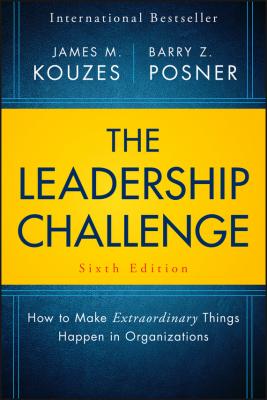The Leadership Challenge. Posner Barry Z.
Читать онлайн.| Название | The Leadership Challenge |
|---|---|
| Автор произведения | Posner Barry Z. |
| Жанр | Зарубежная образовательная литература |
| Серия | |
| Издательство | Зарубежная образовательная литература |
| Год выпуска | 0 |
| isbn | 9781119278979 |
Leadership is something you experience in an interaction with another human being. That experience varies from leader to leader, from constituent to constituent, and from day to day. No two leaders are exactly alike, no two constituent groups are exactly alike, and no two days in the life of leaders and constituents are exactly alike. Great leadership potential is discovered, and unlocked, when you seek to understand the desires and expectations of your constituents, and when you act on them in ways that are congruent with their norms and image of what an exemplary leader is and does. What leaders say they do is one thing; what constituents say they want and how well leaders meet these expectations is another. Knowing what people want from their leaders is the only way to complete the picture of how leaders can build and sustain the kind of relationships that will make extraordinary things happen.
What People Look for and Admire in Their Leaders
To understand leadership as a relationship, we have investigated the expectations that constituents have of leaders.11 Over the years, we have asked people to tell us the personal traits, characteristics, and attributes they look for and admire in a person whom they would be willing to follow. The responses both affirm and enrich the picture that emerged from studies of personal leadership bests.
Конец ознакомительного фрагмента.
Текст предоставлен ООО «ЛитРес».
Прочитайте эту книгу целиком, купив полную легальную версию на ЛитРес.
Безопасно оплатить книгу можно банковской картой Visa, MasterCard, Maestro, со счета мобильного телефона, с платежного терминала, в салоне МТС или Связной, через PayPal, WebMoney, Яндекс.Деньги, QIWI Кошелек, бонусными картами или другим удобным Вам способом.
